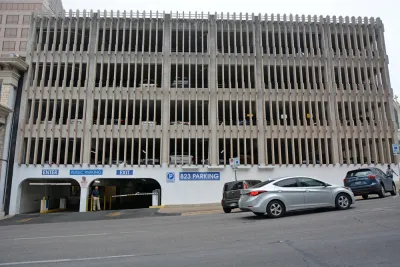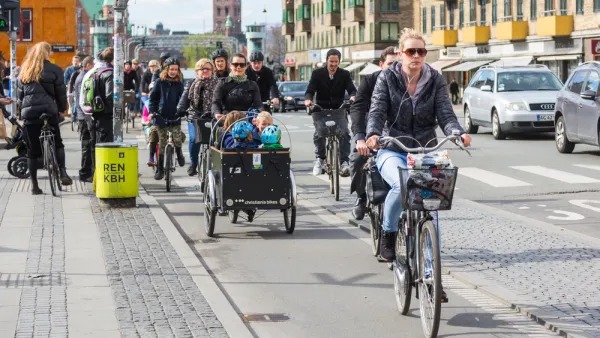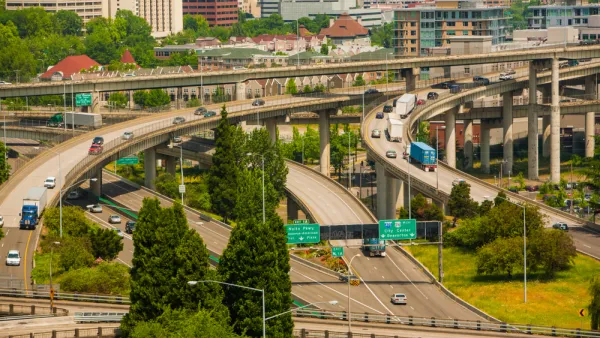“We are on a highway to climate hell with our foot on the accelerator.”

The United Nations published the “Emissions Gap Report 2022” at the end of October, once again calling attention to the vast differences between the changes necessary to prevent the worst effects of climate change. In the United States—much of the remaining gap between where we are with emissions and where we need to be is a direct consequence of planning decisions. It’s the car-centric planning—and United Nations Secretary General António Guterres even went so far as to deploy a tongue-in-cheek metaphor to make a point while announcing the report, saying “We are on a highway to climate hell with our foot on the accelerator.”
Bill Pugh provides an in-depth description of the new report in a guest contribution for Greater Greater Washington, focusing first on the prioritization list for greenhouse gas emission reductions included in the list. Issues of transportation and land use appear early and often. The most important actions for the transportation sector to take, according to the report are to 1) integrate land use and transportation planning to prioritize public transit over private automobiles, 2) investment in projects and programs to make high capacity, low-carbon transportation cheaper and easier, and 3) complete the transmission to zero-emission power for vehicles of all kinds.
According to Pugh, the nation is poised to make a real choice about whether it gets to work immediately on these needed shifts given the huge influx of funding from the Infrastructure Investment and Jobs Act and the Inflation Reduction Act. The Greater Washington, D.C. area has two opportunities to make contributions to the effort, according to Pugh: the Visualize 2045 long-range transportation plan for the region and the TransAction long-range plan for the Northern Virginia Transportation Authority. Both plans include billions for road funding and would double down on the GHG emitting status quo, according to Pugh.
“This is an opportunity for residents of suburban MD, DC, and Northern VA to demand that their local officials prioritize climate and make necessary changes,” writes Pugh.
FULL STORY: New UN climate report points to compact cities, moving people not just electric cars, to cut emissions

Analysis: Cybertruck Fatality Rate Far Exceeds That of Ford Pinto
The Tesla Cybertruck was recalled seven times last year.

National Parks Layoffs Will Cause Communities to Lose Billions
Thousands of essential park workers were laid off this week, just before the busy spring break season.

Retro-silient?: America’s First “Eco-burb,” The Woodlands Turns 50
A master-planned community north of Houston offers lessons on green infrastructure and resilient design, but falls short of its founder’s lofty affordability and walkability goals.

Test News Post 1
This is a summary

Analysis: Cybertruck Fatality Rate Far Exceeds That of Ford Pinto
The Tesla Cybertruck was recalled seven times last year.

Test News Headline 46
Test for the image on the front page.
Urban Design for Planners 1: Software Tools
This six-course series explores essential urban design concepts using open source software and equips planners with the tools they need to participate fully in the urban design process.
Planning for Universal Design
Learn the tools for implementing Universal Design in planning regulations.
EMC Planning Group, Inc.
Planetizen
Planetizen
Mpact (formerly Rail~Volution)
Great Falls Development Authority, Inc.
HUDs Office of Policy Development and Research
NYU Wagner Graduate School of Public Service




























